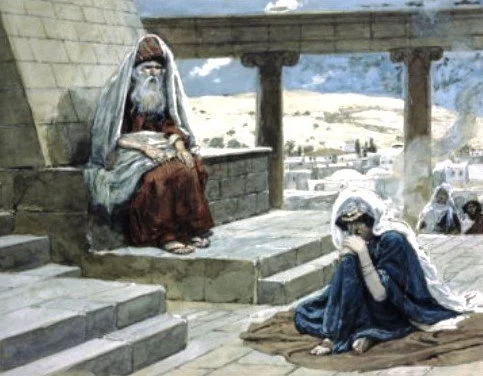On the day when Elkanah sacrificed, he would give portions to his wife Peninnah and to all her sons and daughters; but to Hannah he gave a double portion, because he loved her, though the Lord had closed her womb. Her rival used to provoke her severely, to irritate her, because the Lord had closed her womb. So it went on year by year; as often as she went up to the house of the Lord, she used to provoke her. Therefore Hannah wept and would not eat. Her husband Elkanah said to her, “Hannah, why do you weep? Why do you not eat? Why is your heart sad? Am I not more to you than ten sons?”
After they had eaten and drunk at Shiloh, Hannah rose and presented herself before the Lord. Now Eli the priest was sitting on the seat beside the doorpost of the temple of the Lord. She was deeply distressed and prayed to the Lord, and wept bitterly. She made this vow: “O Lord of hosts, if only you will look on the misery of your servant, and remember me, and not forget your servant, but will give to your servant a male child, then I will set him before you as a nazirite until the day of his death. He shall drink neither wine nor intoxicants, and no razor shall touch his head.”
As she continued praying before the Lord, Eli observed her mouth. Hannah was praying silently; only her lips moved, but her voice was not heard; therefore Eli thought she was drunk. So Eli said to her, “How long will you make a drunken spectacle of yourself? Put away your wine.” But Hannah answered, “No, my lord, I am a woman deeply troubled; I have drunk neither wine nor strong drink, but I have been pouring out my soul before the Lord. Do not regard your servant as a worthless woman, for I have been speaking out of my great anxiety and vexation all this time.” Then Eli answered, “Go in peace; the God of Israel grant the petition you have made to him.” And she said, “Let your servant find favor in your sight.” Then the woman went to her quarters, ate and drank with her husband, and her countenance was sad no longer.
They rose early in the morning and worshiped before the Lord; then they went back to their house at Ramah. Elkanah knew his wife Hannah, and the Lord remembered her. In due time Hannah conceived and bore a son. She named him Samuel, for she said, “I have asked him of the Lord.”
This reading begins the greatest continuous narrative in the Old Testament. It recounts the lives of some of the most famous of all Old Testament characters: Samuel, Saul, Jonathan, and David. We may be anxious to hurry to the lives of these immense personalities, so we skim their introduction, heedless of the warning, ignoring its power.
If the books of Samuel could include a continuous theme, I would propose the following: “Where is God and how do we know?” The mighty arm of God so evident in the Exodus and in the conquering of the promised land in Joshua has shown evidence of atrophy in Judges. By the end, Israel can find no rest from their enemies, they are turning on each other and even their champions exhibit questionable judgment and character. No longer the pillar of fire in the night, nor the cloud by day, God’s presence has dissipated; where has he gone? The book of Samuel confirms this sense of seeming abandonment in 1 Samuel 3:1, “And word from the Lord was rare in those days, visions were infrequent.”
Of course, God is not gone; we just look in the wrong places, hear from the wrong people, expect the wrong things. When the book of Samuel begins, we expect a return to the past; Israel needs a show of power and domination seen in the Exodus and Joshua to stir them from their torpor. This nostalgia for power predisposes us to expect to find God in the priest, or at the temple. Eli would be the type of Moses, the first great priest, who would lead his people to a new promised land of the heart. We do get a return to the past, but not of this sort; instead, we are given a barren woman, harkening to the days before national displays of power where God is close, personal, intimate.
If we do not read carefully, in our hurry to get to the expected champions of the story, we will miss the presence of God. Notice how Hannah is the paradigm of former Old Testament mothers: she is especially loved by her husband like Rachel; she is provoked by her rival like Hagar; and her womb is closed by God like all women of import before her. But infertility and derision are not tokens of weakness but a sign of latent power and proximity to the divine.
Witness Hannah’s activity against Eli’s passive repose - she eats and drinks, arises and travels to contend with the Almighty. Eli simply “[sits] on the seat by the doorpost of the temple of the Lord.” There is no better picture of spiritual malaise than here with Eli. The priest of the Lord has nothing to do other than sit. He would not know, could not know, the activity of God; he cannot be bothered to move from his chair. God could even return in a great cloud like in Exodus and envelop the temple, but Eli would be oblivious. His chair is outside the temple, his back to God. But God is being moved to action.
Hannah no doubt passes the listless priest on her way into the holy place to pray and weep and vow, reminding us of the many times voices cried out and called God to action. Eli, not only unable to recognize the movement of God, cannot even recognize a praying woman, confusing Hannah for a drunk. Hannah corrects him and Eli conjures the hubris to speak for God, “Go in peace, may the God of Israel grant your petition that you have asked of him.” Incredible that Eli, a man we expect to be closest to God, does not even know Hannah’s request. Is he embarrassed that a priest is so spiritually blind he cannot recognize a woman pouring out her soul to God? Perhaps his laziness and apathy require too much energy to overcome. Either way, the interaction makes plain that Hannah does not need this priest to intercede on her behalf. God is not with Eli.
The warning presented in this introductory scene for Samuel is that we should not expect to find God with power any more. Indeed, Samuel attempts to maintain his power but ultimately dies with the power passing to a king. Saul never had access to this power and kills himself in humiliation, David thinks he can control this power and loses everything, including the kingdom he labored to bring together. In fact, God appears more consistently in individuals who lack the power we expect God to use. Here, Hannah benefits from proximity to God, not the priest Eli. Later, the people of Israel will attempt to use God’s residence in the Ark of the Covenant to win battles for them. But God is not there - the Ark is taken and Israel suffers defeat. Neither is God found ultimately in the words of the prophet Samuel, or the king Saul, or king David. The question that haunts us throughout the narrative, “Where is God and how do we know,” is never satisfactorily answered. We can know for sure, however, that God is not found in displays of power, manipulation, coercion, sabotage, no matter the ends used to justify the means.
I can’t help but feel that people easily claim God’s power to justify their own domination. Of course, there had been moments in God’s life when he was powerful - where he fought the oppressed to free the slave and provided sustenance in the desert. We assume this is what God is like, and so claim this power as good when the devastation of others is required for our own superiority. But this power is self-defeating as the end of Judges shows. So God attempts to refocus our hearts on another power - humility. He shows through the book of Ruth that he is present in the love of a foreigner, and he shows here that he is present in the infertility of a mother. So when we continue the stories of Samuel, when characters wax eloquent on their proximity to God, or when the line between genuine piety and spiritual manipulation become blurred, we can look back on the first example and know with confidence that God is in the barren woman.

